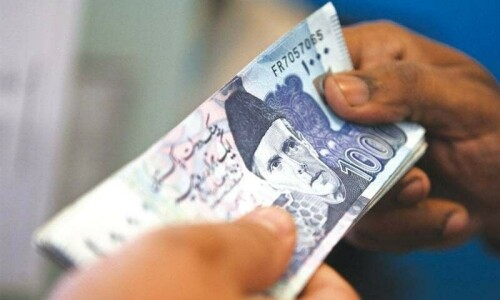PARIS, June 23: Inflation, the curse of the 1970s, is staging a comeback, led by sky-high oil prices. This time, the menace is more genuinely global than three decades ago, and this time much of it is “Made in China”.
Wary of past errors, Western central banks may well opt for shock therapy interest rate rises in an effort to prevent prolonged stagflation, the toxic mix of inflation and economic stagnation that followed the oil crises of the 1970s.
Their prospects of success depend at least in part, though, on how willing the rising powers of the developing world are to play the game, above all China, an economy that was shut to the outside world 30 years ago but has now taken it by storm.
While inflation is far higher in faster-growing regions than in the United States and Western Europe, everyone feels the pain because of the globalisation of trade, says Stephen Roach, Asia region chairman of Morgan Stanley.
“The risks of a new stagflation are mounting,” he said in an article earlier this month. “Like nearly everything else in the world these days this one is likely to be made in Asia.” Average annual inflation rates in the developing world were about three times those of industrialised economies last year, and that overrun will widen in 2008, according to figures from the International Monetary Fund.
IMF forecasts, published last April and perhaps in need of upward revision, foresee world inflation rising from an average of 3.9 per cent for 2007 to 4.7 per cent in 2008. Revealingly, the IMF sees the inflation rate nearly doubling to just short of 12 per cent in the emerging and developing world, as opposed to rising from 2.2 to 2.6 in advanced economies.
In rich and poor countries, fuel and food prices surges have sparked wave after wave of protests by truckers, taxi drivers, fishermen and farmers demanding government action, increasing fears of political instability and economic downturn.
The only solution, which is drastic, painful and risky, may be for the Group of Seven long-industrialised economies to raise their currency values further by raising interest rates, says Stephen King, chief economist at HSBC.
“We must be cruel to be kind,” King says, suggesting what is needed is a “short, sharp, collective interest rate shock”.
That would be a U-turn from Western appeals for currency appreciation in China and other emerging market economies to address global imbalances, King says.
But it would, he argues, put the focus on the source of the global inflation problem, overly lax monetary conditions in the emerging world.
This would force emerging market countries to confront the disconnect between their increasing economic maturity and their monetary youth and inexperience, he says.
The risks for the developed countries are the ones everyone is aware of that rate rises compound existing downturns in the United States and other countries already weakened by credit crunches or housing slumps, or both, notably Britain.
The underlying assumption is that the G7 countries take the lead and everyone else more or less follows, which for emerging market economies means abandoning cheap-currency policies that do little or nothing to combat inflation or overheating.—Reuters















































Dear visitor, the comments section is undergoing an overhaul and will return soon.